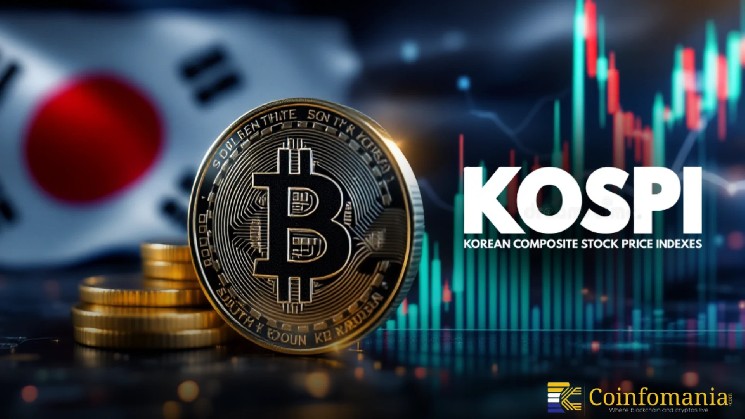South Korea’s financial situation is undergoing major changes. The country’s main stock index, KOSPI, hit a record high. Meanwhile, trading activity on local crypto exchanges has fallen to record lows. This trend, shared by CryptoQuant CEO Ki Young Ju, reveals a growing preference among investors for traditional markets over digital assets.
KOSPI soars to record high
According to the data posted by Ki Young-joo, on November 3, the KOSPI index soared over 4,200 points, marking the strongest performance in history. The index has been steadily rising throughout the year. This reflects the renewed optimism in the Korean stock market.
According to CryptoQuant CEO Ki Yong-joo, while the Korean stock index KOSPI has hit a record high, the trading volume of South Korean virtual currency exchanges has fallen to a record low. He agreed with analysts that the South Korean president is actively pushing up stock prices… pic.twitter.com/z032aaTp0V
— Wu Blockchain (@WuBlockchain) November 4, 2025
Analysts suggest the rise may not be entirely organic. Some believe that the South Korean government is actively encouraging participation in the stock market. Part of a broader strategy to move speculative activity away from hot sectors such as real estate and cryptocurrencies. One X user commented that the president is “aggressively manipulating the stock market” to cool real estate speculation. They are regaining public support amid multiple legal issues. Ki Young Joo also agreed with that assessment. He highlights the widespread view that policy-driven incentives are accelerating the rise.
Cryptocurrency trading volume drops to record low level
At the same time, the trading activity of South Korea’s top five crypto exchanges Upbit, Bithumb, Coinone, Korbit, and Gopax collapsed. Data from CryptoQuant shows that daily trading volumes have decreased significantly. From 17.1 trillion won in the second half of 2024 to just 3.2 trillion won in June 2025, a decrease of more than 80%.
This plunge occurred even as Bitcoin prices have been rising globally. This suggests that local retail investors are exiting cryptocurrencies despite broader market gains. This marks one of the sharpest decelerations in the history of Korean cryptocurrencies. This signals a fundamental shift in investor sentiment.
The collapse of activities has also affected the so-called “Kimchi Premium.” A market phenomenon in which South Korean virtual currency prices are traded higher than the world average. As trading volume declined, the premium feeling diminished, further reducing its speculative appeal.
Government policy and market psychology
Officials point out that the government’s efforts to stabilize financial markets are having an effect. But it could also be a cooling innovation in the cryptocurrency space. By increasing the attractiveness of stocks and increasing oversight of cryptocurrencies. Policymakers appear to be reshaping retail capital flows. Ki Young Ju’s post highlights how macro-level decisions and political pressures can change the direction of the entire KOSPI market. Investors who once chased rapid gains in cryptocurrencies are now chasing returns in the stock market instead.
Change in investor focus
South Korea’s financial momentum appears to be returning from the digital frontier to traditional markets. KOSPI sets a record, with virtual currency trading volume hitting an all-time low. Speculative energy in this country has clearly found a new home. One backed by policy and political timing, not blockchain hype. It remains to be seen whether this change will continue or be reversed in the next market cycle. But for now, the stock has soared and the cryptocurrency’s once grip on South Korean traders has loosened dramatically.










